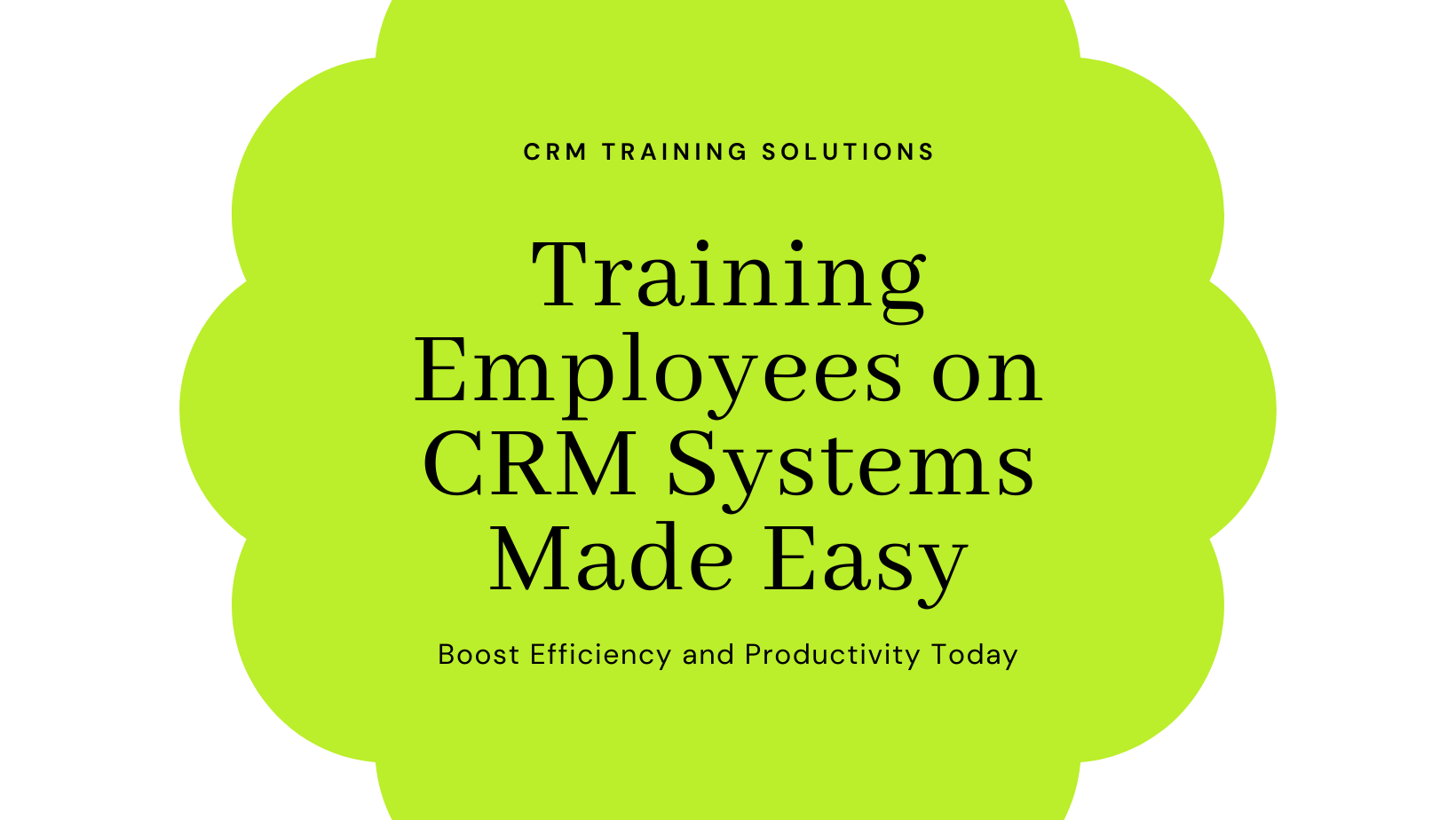Training employees on CRM systems is essential for maximizing system utilization, improving productivity, and enhancing customer interactions. Effective training programs empower employees with the knowledge and skills needed to leverage CRM functionalities effectively, drive business growth, and deliver exceptional customer experiences. This blog delves into the importance of CRM training, strategies for successful implementation, and best practices for optimizing employee proficiency.
Understanding the Importance of CRM Training
1. Enhancing System Adoption and Utilization
Comprehensive CRM training programs facilitate seamless system adoption among employees, ensuring they understand the platform’s capabilities, functionalities, and benefits. Training empowers users to navigate CRM interfaces confidently, input and retrieve customer data accurately, and leverage automation features to streamline workflows. Enhanced system utilization boosts productivity, operational efficiency, and alignment with organizational goals.
2. Improving Customer Interactions and Satisfaction
Well-trained employees are equipped to deliver personalized customer experiences by utilizing CRM insights to anticipate needs, resolve inquiries promptly, and foster long-term relationships. Training enhances employees’ ability to access customer information efficiently, track interactions across channels, and deliver consistent service that exceeds customer expectations. Improved customer interactions drive satisfaction, loyalty, and retention rates.
Strategies for Effective CRM Training
1. Customized Training Programs
Tailor CRM training programs to address specific organizational roles, responsibilities, and proficiency levels. Design modular training modules that cater to different departments—sales, marketing, customer service—and their unique use cases within the CRM system. Incorporate hands-on exercises, role-playing scenarios, and real-world case studies to reinforce learning objectives and practical application of CRM functionalities.
2. Interactive Learning Platforms and Resources
Utilize interactive learning platforms, e-learning modules, and CRM simulation tools to engage employees and facilitate self-paced learning. Provide access to comprehensive training materials, video tutorials, and user guides that cover CRM navigation, data entry best practices, and advanced features. Encourage employees to explore sandbox environments to experiment with CRM functionalities in a risk-free setting.
Best Practices for Optimizing CRM Training
1. Continuous Learning and Skill Development
Promote a culture of continuous learning and skill development by offering ongoing CRM training sessions, workshops, and refresher courses. Schedule regular training updates to introduce new CRM features, updates, and industry best practices that align with evolving business needs and technological advancements. Empower employees to share knowledge, collaborate on CRM usage tips, and support each other’s learning journey.
2. Feedback and Evaluation Mechanisms
Implement feedback mechanisms, surveys, and assessments to gather employee insights on CRM training effectiveness, content relevance, and learning outcomes. Solicit feedback on training modules, instructor effectiveness, and areas requiring improvement to enhance program efficacy and address specific learning needs. Use performance metrics, user proficiency assessments, and certification programs to recognize and reward CRM proficiency achievements.
Ensuring Successful CRM Training Implementation
1. Executive Support and Leadership Engagement
Secure executive sponsorship and leadership buy-in to prioritize CRM training initiatives, allocate resources, and reinforce organizational commitment to employee development. Executive support fosters a culture of learning, encourages participation in training programs, and underscores the strategic importance of CRM proficiency in achieving business objectives.
2. Integration with Onboarding and Change Management
Integrate CRM training with new employee onboarding processes and change management initiatives to ensure seamless system adoption and cultural alignment. Incorporate CRM training into employee induction programs, orientation sessions, and cross-functional team workshops to promote collaboration, knowledge sharing, and organizational cohesion.
Conclusion: Empowering Employees with CRM Training
Effective CRM training programs empower employees with the knowledge, skills, and confidence to leverage CRM systems as strategic assets for driving business growth and enhancing customer relationships. By customizing training programs, embracing interactive learning platforms, and fostering a culture of continuous improvement, organizations can optimize CRM utilization, improve operational efficiencies, and deliver superior customer experiences.
As businesses invest in CRM training to unlock the full potential of their systems, Sodio Technologies remains committed to delivering innovative CRM solutions and expertise that empower organizations to succeed in a competitive marketplace. Embrace CRM training as a cornerstone of employee development, organizational success, and customer-centricity to achieve sustainable growth and leadership in your industry.







